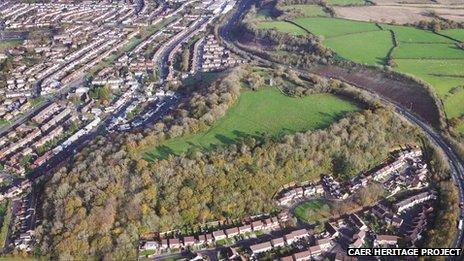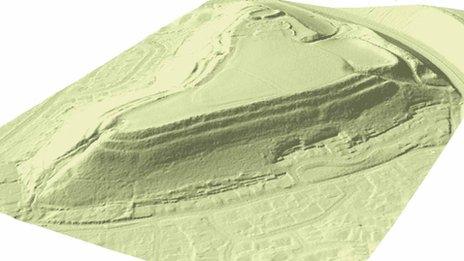Cardiff Iron Age hill fort dig seeks 2,000 visitors
- Published

The hill fort is sited alongside one of the main roads into Cardiff
A search for 2,000 visitors for an archaeology dig at an Iron Age fort on the outskirts of Cardiff is under way by Cardiff University.
The Caerau hill fort near Ely is thought to have been occupied from the 5th Century BC by the Silurian tribe.
A dig last year involving 1,000 people found its use may have continued into the late Roman era or even later.
The Caerau And Ely Rediscovering Heritage (Caer) Project runs until 25 July.
Organisers say work on the site since 2011 has helped rewrite the history of early Cardiff, revealing an early occupation date for a hill fort with "massive" ramparts.
Last year's excavations revealed:
Five large Iron Age roundhouses, a roadway, extensive assemblages of Iron-age and Roman pottery and a decorated Iron Age glass bead
Evidence showing occupation at the site stretched from the Bronze Age through to the late Roman era and beyond
Burnt seeds and well-preserved animal bones which show the prehistoric occupants of Cardiff kept cattle, sheep, pigs and horses and grew oats, barley and wheat
Caer Heritage Project co-director Olly Davis said: "During the 2013 dig, more than 1,000 local people visited the dig while it was happening, and 120 more were directly involved in the archaeological work.
"Our challenge this year is to attract twice as many visitors and to get the people of South Wales to value this amazing site and celebrate the remarkable communities which live in its shadow."
- Published19 July 2013

- Published24 June 2013
